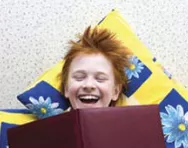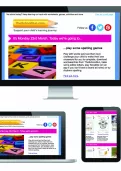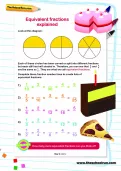Important update from TheSchoolRun
For the past 13 years, TheSchoolRun has been run by a small team of mums working from home, dedicated to providing quality educational resources to primary school parents. Unfortunately, rising supplier costs and falling revenue have made it impossible for us to continue operating, and we’ve had to make the difficult decision to close. The good news: We’ve arranged for another educational provider to take over many of our resources. These will be hosted on a new portal, where the content will be updated and expanded to support your child’s learning.
What this means for subscribers:
- Your subscription is still active, and for now, you can keep using the website as normal — just log in with your usual details to access all our articles and resources*.
- In a few months, all resources will move to the new portal. You’ll continue to have access there until your subscription ends. We’ll send you full details nearer the time.
- As a thank you for your support, we’ll also be sending you 16 primary school eBooks (worth £108.84) to download and keep.
A few changes to be aware of:
- The Learning Journey weekly email has ended, but your child’s plan will still be updated on your dashboard each Monday. Just log in to see the recommended worksheets.
- The 11+ weekly emails have now ended. We sent you all the remaining emails in the series at the end of March — please check your inbox (and spam folder) if you haven’t seen them. You can also follow the full programme here: 11+ Learning Journey.
If you have any questions, please contact us at [email protected]. Thank you for being part of our journey it’s been a privilege to support your family’s learning.
*If you need to reset your password, it will still work as usual. Please check your spam folder if the reset email doesn’t appear in your inbox.
Key Stage 2 drama – the curriculum

In KS2, the national curriculum states that children should prepare poems and play scripts to read aloud and to perform, showing understanding through intonation, tone, volume and action so that the meaning is clear to an audience.


Start a unique learning programme!
- Weekly programme for each school year
- Worksheets sent direct to your inbox
- Keeps your child's learning on track
Here are some examples of how drama is used in KS2:
- Children may be given a range of poems and asked to choose one to perform in a pair or group. They will be asked to think about presenting the poem with expression and may be asked to accompany it with actions and musical instruments.
- When children are studying play scripts, they will be asked to perform a play in a group. This enables them to understand why play scripts are set out in a particular way. It also encourages them to empathise with characters and think about expression.
- Children may be asked to improvise a scene between two characters in a story they have read (for example: what might Goldilocks say to her mother when she gets home?)
- Hot-seating is a popular activity for the last 10 minutes of a lesson. One child will be asked to sit on a chair at the front and pretend to be a character from a story that has been read. The other children will then ask the 'character' questions to which the person in the hot-seat must reply to as fully as possible.
- 'Conscience alley' is also a good activity to round up a lesson. It is often used if a character has to deal with a dilemma or if a teacher wants the class to think about two opposing viewpoints, for example, when Max in Where the Wild Things Are is enjoying being with the wild things, but is also missing home. The class splits into two and stands in a line (one line faces the other). One line is told to think of reasons to encourage Max to stay and the other line is told to think of reasons that Max should go home. One person pretends to be Max and has to walk in between the line of children. As he or she walks down the line, each child (alternating between the lines) has to call out their message to Max.
Help your child at home
- Share stories by reading aloud to each other.
- Ask your child to think of alternative endings for stories you've read.
- Take your child to the theatre and see if they can describe the conventions that make film and theatre different from each other.
- Play this prop game. Choose an object (the wackier the better) and take turns to use it in role play. For example, with a spoon you could pretend to be Goldilocks about to taste the bears' porridge, or use it as paddle in a boat. The idea is to think quickly and to say whatever idea comes to mind!